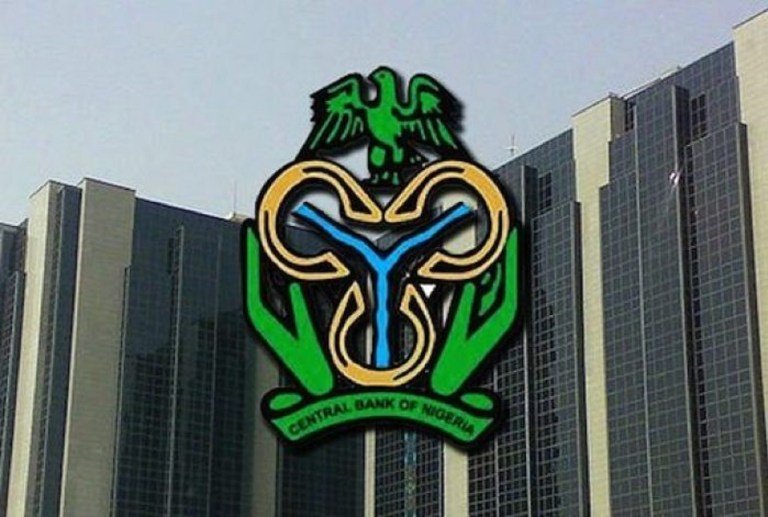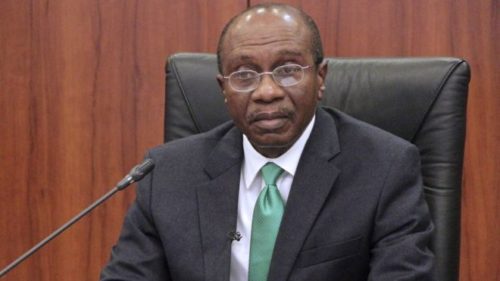The Monetary Policy Committee (MPC) of the Central Bank of Nigeria (CBN) has warned the Federal Government against using debt-to-gross domestic product (GDP) ratio as a reason for accumulating debts.
During its 271st meeting in Abuja, the Committee raised alarm over rising public debts, which it noted, were growing faster than both domestic and external revenues.
In the communique read by the CBN governor, Godwin Emefiele, at the end of the two-day meeting, the Committee asked the Federal Government to consider building buffers against the growing impact of the country’s high debt profile.

One of the key buffers was the resolve not to be sharing among the three tiers of government all the proceeds from the Federation Account at the monthly Federation Accounts Allocation Committee (FAAC) meetings.
Such a caution by the Fiscal Authorities, the MPC said, would help avert a macro-economic downturn, in the event of an oil price shock at the international market.
Besides, the committee urged the government to gradually reduce reliance on oil receipts and focus on revenue diversification through reforms of the tax system.
Read Also: Federal GOVT Gives Deadline To Sack Unqualified Teachers
The Committee also called on the government to rationalise fiscal expenditure towards reducing the current excessively high cost of governance.
Meanwhile, the latest report by the Debt Management Office (DMO) on Nigeria’s total public debt shows a rise by about 2 per cent to N26.22 trillion in the last quarter of last year, from N25.7 trillion recorded between July and September 2019.
The Director-General of the DMO, Patience Oniha, said despite the marginal increase in the public debt level, the country was still within the acceptable debt sustainability threshold.
The 2017 Annual National Debt Sustainability Analysis Report showed Nigeria’s total public debt-to-GDP ratio was still below the 56 per cent threshold.

The debt-to-GDP ratio is the metric comparison of a country’s public debt (what a country owes) to its (GDP (aggregate value of goods and services produced in the economy over a particular period).
Often calculated as a percentage, the ratio of total GDP divided by total debt portfolio can also be interpreted as the number of years the country requires to pay back its debt, if GDP is dedicated entirely to debt repayment.
Read Also: Why Senate Rejected Buhari’s $30bn Loan Request – Lawmaker
However, the MPC advised the government against the practice of interpreting the favourable debt-to-GDP ratio in a way to justify continued borrowing from domestic and foreign sources and accumulating more debts.
Government critics say continued borrowing to finance government business amounts to inadvertently mortgaging the future of generations of Nigerians who would be saddled with the burden of servicing such debts for several years.
Noting the continued rise in headline inflation (year-on-year) to 11.98 per cent in December 2019, from 11.85 per cent in the previous month, the Committee said this was attributable to increase in both the food and ‘core’ components.
The two components rose by 14.67 and 9.33 per cent in December 2019, from 14.48 and 8.99 per cent respectively in November.
Apart from addressing the monetary factors, the Committee said opportunity for further monetary policy measures has become constrained.
Observing that inflation rate above 12 per cent would hurt the economy, the Committee called on the fiscal authorities to speedily address legacy structural impediments giving rise to upward-trending price developments in the economy.
Read Also: Okorocha Left N300bn Debt For Ihedioha – PDP
It identified these structural impediments to include the infrastructure deficit and the long-standing clashes between herdsmen and farmers, which have constrained domestic production, resulting significant rise in food inflation.
“The Federal Government must relentlessly seek innovative ways of addressing security challenges across the country in order to boost aggregate food supply,” the MPC said.
Post Disclaimer
The opinions, beliefs and viewpoints expressed by the author and forum participants on this website do not necessarily reflect the opinions, beliefs and viewpoints of Anaedo Online or official policies of the Anaedo Online.




